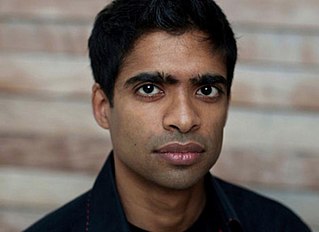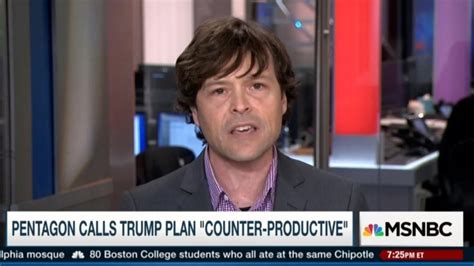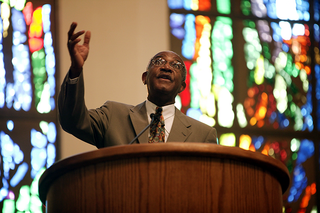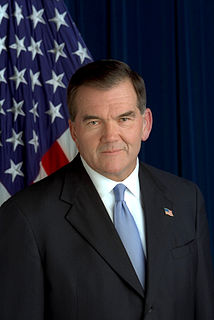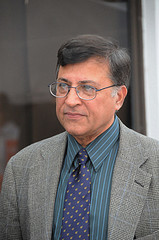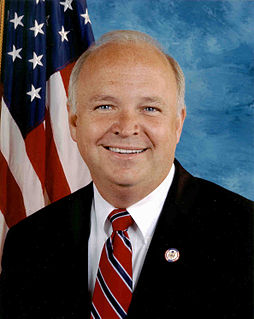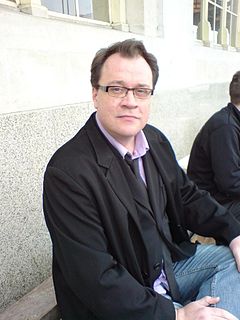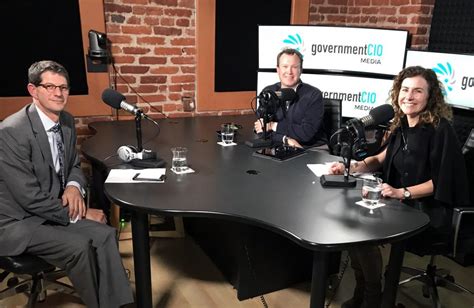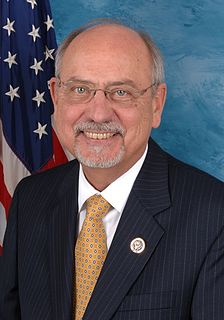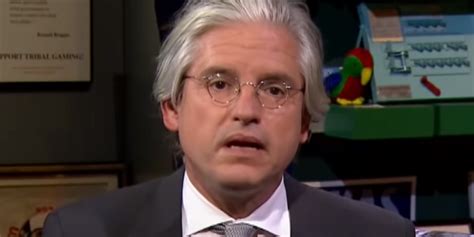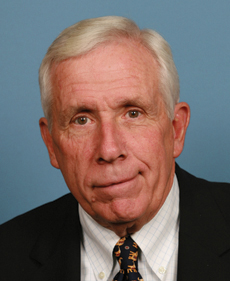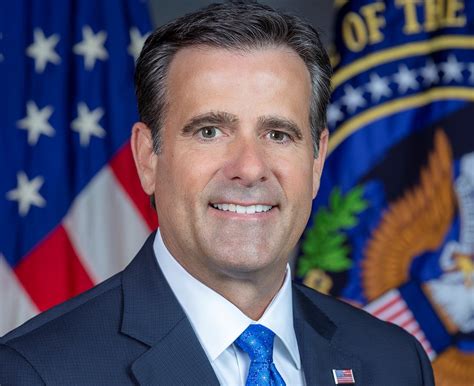Top 1200 Cyber Attacks Quotes & Sayings - Page 2
Explore popular Cyber Attacks quotes.
Last updated on April 17, 2025.
What we're going to do with cyber-attacks - and we have already actually started - we started well before the executive order actually was issued - is working with the private sector, determine how best to share information, because, you know, we can't help until we know that there has actually been an attempted intrusion or attack. Information-sharing piece is very important.
The problem, of course, is that the vacuum left by Younis Tsouli is quickly being filled by a larger, anonymous group of new cyber terrorists who are competing to follow in his legacy. He has become the inspiration for a second generation of "cyber terrorists" who are studying and learning from his mistakes.
Today is just to the beginning of a long and overdue national discussion on how to protect ourselves from modern cyber crime and evolving national security threats and how to develop the cyber offense strategies necessary to gain a critical security edge in the 21st century. We need the edge, and ideally, a big one.
The anonymity issue is a big question. As long as people can disguise cyber attacks and as long as there is a sort of question mark over who is responsible, then the problem will continue to exist. And of course what happens in response to that is that there is a move to try and refashion the Internet so that anonymity is impossible, which of course leads to fears among all sorts of groups - civil rights groups, NGOs, and political parties - that the Internet is going to be used simply as a method of control. So these are very sensitive issues.
I have done business in China for 25 years, so I know that in order to get China to cooperate with us, we must first actually retaliate against their cyber-attacks so they know we're serious. We have to push back on their desire to control the trade route through the South China Sea through which flows $5 trillion worth of goods and services every year.
The U.S. has the most advanced cyber-weaponry on the planet, and t if you look at the U.S. from the perspective of the Chinese People's Liberation Army, which runs most of its cyber activities, they look at you and they see Google and Facebook - the two largest depositories of personal data in the world - and they see the reach of the National Security Agency, which has huge digital capacity to know what is going on around the world. So the Chinese would see cyber as an un-level playing field, because the U.S. holds all sorts of advantages.
We know that the government in China has been involved in cyber attacks before. I look at our partners around the world, our traditional allies, our NATO partners who are making the same assessment. We share so much with them and rely on their technology, their expertise and interoperability in many aspects of our own armed forces.
I think that all of the cyber attacks that are taking place, but particularly this - the Russian one, had a profound impact on the American system, on our political process, on our - it invaded the space of our election. The releasing on a regular basis of one party's stolen emails had an impact, and I think that other things also had an impact.
I think cyber security, cyber warfare will be one of the biggest challenges facing the next president, because clearly we're facing at this point two different kinds of adversaries. There are the independent hacking groups that do it mostly for commercial reasons to try to steal information that they can use to make money.
What we need to do is we need to create new international standards of behavior - not just national laws, because this is a global problem. We can't just fix it in the United States, because there are other countries that don't follow U.S. laws. We have to create international standards that say that cyber attacks should only ever occur when it is absolutely necessary.
I started getting these attacks in 2009, just as my music career was taking off. I'd be doing photo-shoots and started to feel like I was having heart attacks. Increasingly I found it difficult to step outside my flat. Things started to get better after I saw a therapist, who told me I needed to make peace with my panic attacks.
One of the problem with cyber is that it lends itself to preemptive action. Your assets in cyber-warfare are your opponents' vulnerabilities, therefore in order to quantify your assets you have to be able to ascertain how vulnerable your opponents are and that involves pre-emptive exploration of your opponents' networks. So in that sense it lends itself to some pretty nasty stuff.
We do know from our intelligence community that Russia had a design to discredit the U.S. elections, and took sides in favor of Mr. Donald Trump over Hillary Clinton. We do now that they engaged individuals and entities to do cyber-attacks to get as much information as they possibly could, and of course, also used WikiLeaks to accumulate information, and released it in a strategic way that could affect our election, and certainly the credibility of our election.
Unlike previous wars, our enemy now is a stateless network of religious extremists. They do not obey the laws of war, they hide among peaceful populations and launch surprise attacks on civilians. They have no armed forces per se, no territory or citizens to defend and no fear of dying during their attacks. Information is our primary weapon against this enemy, and intelligence gathered from captured operatives is perhaps the most effective means of preventing future attacks.
Of course I don't know what's going on in that meeting on in the mind of Donald Trump. But I do know one of the things President Barack Obama was struck by was how much time he spent on cyber-security as president. And one of the things he said was that, in the years ahead, the next president will be spending even more time. And cyber-security isn't a thing that goes away after this election. It's a constant flow.
Cyber Leader: Daleks, be warned. You have declared war upon the Cybermen. Dalek Sec: This is not war - this is pest control! Cyber Leader: We have five million Cybermen. How many are you? Dalek Sec: Four. Cyber Leader: You would destroy the Cybermen with four Daleks? Dalek Sec: We would destroy the Cybermen with one Dalek! You superior in only one respect. Cyber Leader: What is that? Dalek Sec: You are better at dying.
The wheel of government will continue to work, even as these people come in and we wait for them, but the issue is, there's always one thing, that a new administration confronts.For the Bush administration, it was terrorism. For this administration, it's going to be cyber-security, not Russian hacking. That's a symptom of the bigger problem, but the bigger issue of cyber, how they deal with that. So, we may see something else we're not anticipating. That's going to be their challenge.
It's always been government's role to protect the security of the nation. And cyber-attacks is a security issue, from our perspective. And it's a security issue of particular concern with respect to the nation's core critical infrastructure, the infrastructure everyone relies on, the energy sector, the telecommunications sector, the banking sector.
I'm outraged by the attacks on American diplomatic missions in Libya and Egypt and by the death of an American consulate worker in Benghazi. It's disgraceful that the Obama Administration's first response was not to condemn attacks on our diplomatic missions, but to sympathize with those who waged the attacks.
We face cyber threats from state-sponsored hackers, hackers for hire, global cyber syndicates, and terrorists. They seek our state secrets, our trade secrets, our technology, and our ideas - things of incredible value to all of us. They seek to strike our critical infrastructure and to harm our economy.
All of the threat streams that we have, from all aspects, militarily, economically, supply chain issues, foreign investment, technologically, cyber issues, cyber warfare, 5G, telecommunications - China is in all of those and they are the only country to be in that space and the only country that threatens America supremacy.



